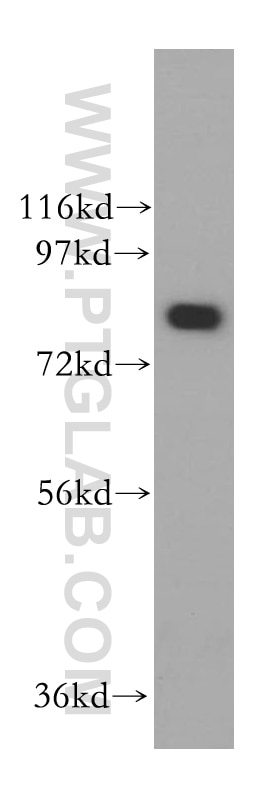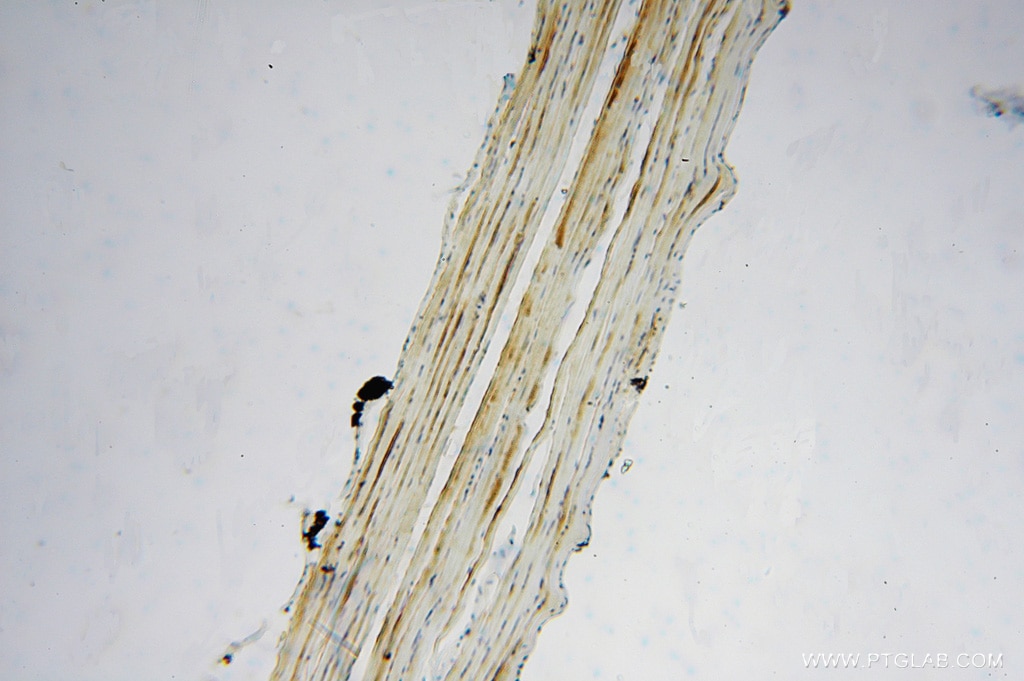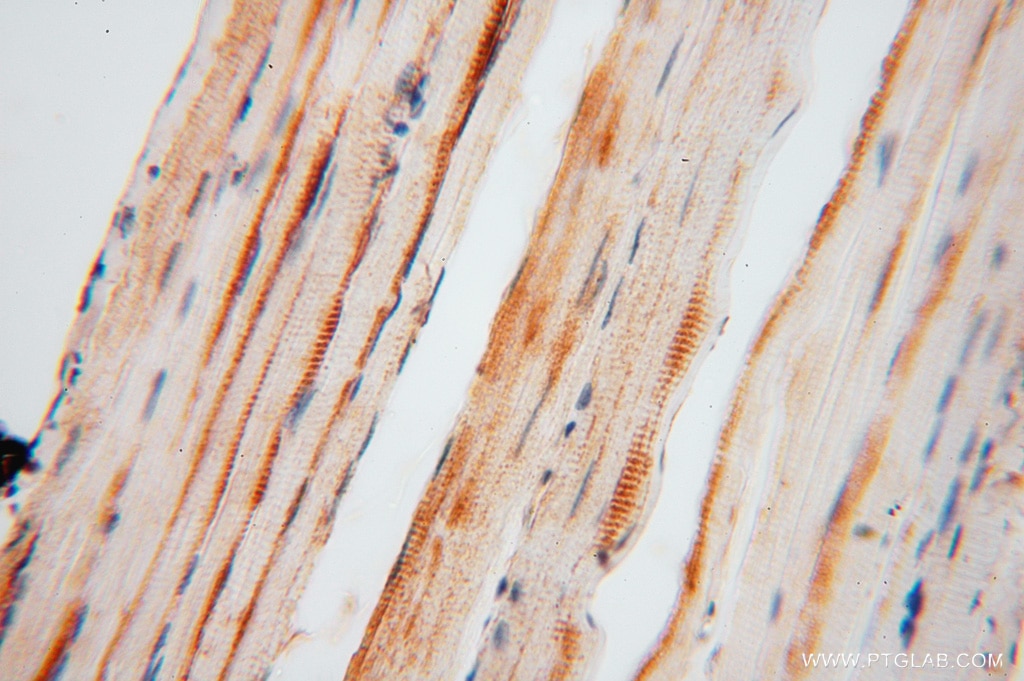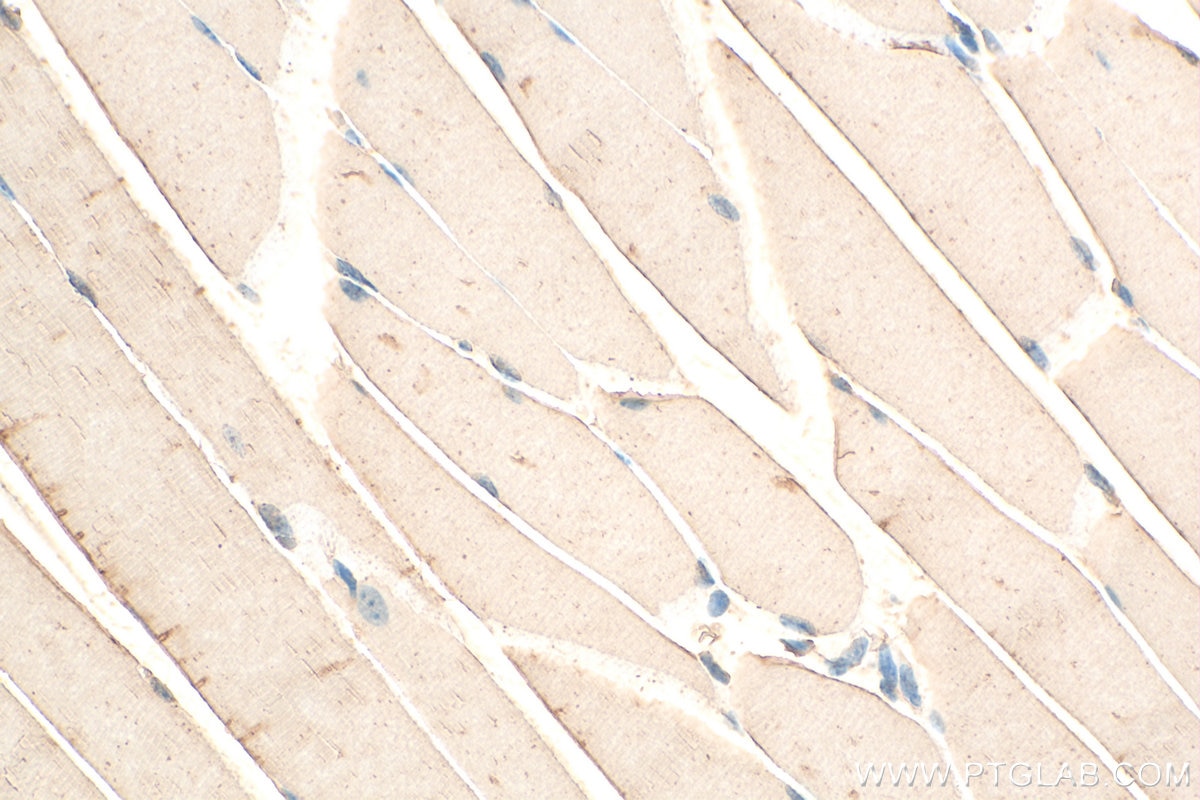Tested Applications
| Positive WB detected in | U-937 cells |
| Positive IHC detected in | mouse skeletal muscle tissue, human skeletal muscle tissue Note: suggested antigen retrieval with TE buffer pH 9.0; (*) Alternatively, antigen retrieval may be performed with citrate buffer pH 6.0 |
Recommended dilution
| Application | Dilution |
|---|---|
| Western Blot (WB) | WB : 1:200-1:1000 |
| Immunohistochemistry (IHC) | IHC : 1:50-1:500 |
| It is recommended that this reagent should be titrated in each testing system to obtain optimal results. | |
| Sample-dependent, Check data in validation data gallery. | |
Product Information
15169-1-AP targets FEM1A in WB, IHC, ELISA applications and shows reactivity with human samples.
| Tested Reactivity | human |
| Host / Isotype | Rabbit / IgG |
| Class | Polyclonal |
| Type | Antibody |
| Immunogen |
CatNo: Ag7357 Product name: Recombinant human FEM1A protein Source: e coli.-derived, PGEX-4T Tag: GST Domain: 322-669 aa of BC004988 Sequence: WRRAMELRHQGGEYLPKPEPPQLVLAYDYSREVNTTEELEALITDPDEMRMQALLIRERILGPSHPDTSYYIRYRGAVYADSGNFERCIRLWKYALDMQQSNLEPLSPMTASSFLSFAELFSYVLQDRAAKGSLGTQIGFADLMGVLTKGVREVERALQLPREPGDSAQFTKALAIILHLLYLLEKVECTPSQEHLKHQTVYRLLKCAPRGKNGFTPLHMAVDKDTTNVGRYPVGRFPSLHVVKVLLDCGADPDSRDFDNNTPLHIAAQNNCPAIMNALIEAGAHMDATNAFKKTAYELLDEKLLARGTMQPFNYVTLQCLAARALDKNKIPYKGFIPEDLEAFIELH Predict reactive species |
| Full Name | fem-1 homolog a (C. elegans) |
| Calculated Molecular Weight | 74 kDa |
| Observed Molecular Weight | 74 kDa |
| GenBank Accession Number | BC004988 |
| Gene Symbol | FEM1A |
| Gene ID (NCBI) | 55527 |
| RRID | AB_2102618 |
| Conjugate | Unconjugated |
| Form | Liquid |
| Purification Method | Antigen affinity purification |
| UNIPROT ID | Q9BSK4 |
| Storage Buffer | PBS with 0.02% sodium azide and 50% glycerol, pH 7.3. |
| Storage Conditions | Store at -20°C. Stable for one year after shipment. Aliquoting is unnecessary for -20oC storage. 20ul sizes contain 0.1% BSA. |
Background Information
FEM1A, also named as Protein fem-1 homolog A-A, is a 654 amino acid protein, which Belongs to the fem-1 family. FEM1A is highly expressed in adult heart and skeletal muscle. FEM1A is a Probable component of an E3 ubiquitin-protein ligase complex, in which it may act as a substrate recognition subunit. FEM1A may participate in antiinflammatory signaling via its interaction with PTGER4.Furthermore, Fem1aexpression is down-regulated in rhabdomyosarcoma cells suggesting that the FEM1A gene may be involved in muscle differentiation or be at least a marker of abnormal differentiation in rhabdomyosarcoma. Knowing that a molecular weight of 76 kDa is predicted for human FEM1A, but phosphorylated FEM1A is 95-100 kDa (PMID: 19406122).
Protocols
| Product Specific Protocols | |
|---|---|
| IHC protocol for FEM1A antibody 15169-1-AP | Download protocol |
| WB protocol for FEM1A antibody 15169-1-AP | Download protocol |
| Standard Protocols | |
|---|---|
| Click here to view our Standard Protocols |










